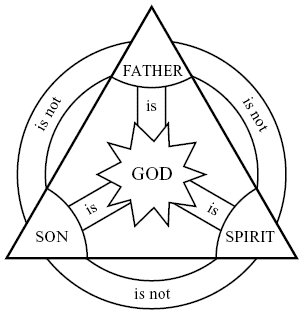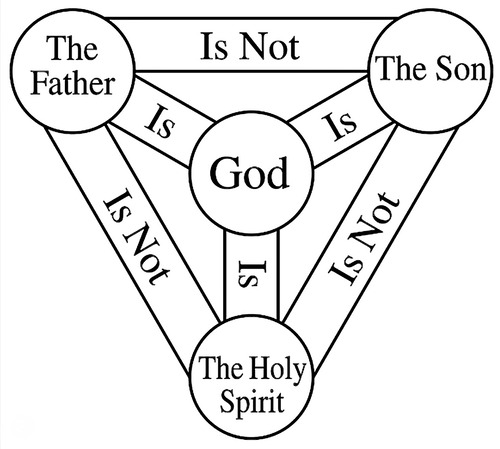Does God Still Talk Directly To His People?
“God told me to take this job.” “I feel the Lord leading me to marry her.”
Such phrases echo through small group discussions, prayer meetings, and pastoral counselling sessions across the Christian world. The question of whether God still speaks directly to His people isn’t merely academic—it shapes how we pray, make decisions, and understand our relationship with God. And there are faithful Christians on both sides—those who reply in the affirmative to the question in our title, and those who don’t.
As we navigate this theological terrain, we encounter a profound tension: How do we affirm Scripture’s complete authority while remaining open to the Holy Spirit’s active work in believers’ lives today? Reformed scholars, all committed to biblical fidelity, have reached different conclusions…
DOES GOD STILL TALK DIRECTLY? TWO VIEWS, ONE SCRIPTURE
Reformed Christians generally fall into two camps on this issue: the Cessationists and the Continuationists. Both sides cherish Scripture as God’s authoritative Word, yet they’ve arrived at differing conclusions about God’s communication with believers today.
The Cessationist Position: “The Canon Is Closed” Cessationists believe God’s direct, revelatory communication ceased with the completion of Scripture. As RC Sproul often argued, “God now speaks to us through His completed Word.”
Their biblical foundation rests on passages like Hebrews 1:1-2: “Long ago, God spoke many times and in many ways to our ancestors through the prophets. And now in these final days, he has spoken to us through his Son.” For Cessationists, these “final days” marked the conclusion of new divine revelation.
They point to 1 Corinthians 13:8-10, interpreting “when the perfect comes” as referring to the completed canon of Scripture. They also emphasize 2 Timothy 3:16-17, which states that Scripture equips believers “for every good work”—suggesting no additional revelation is necessary.
Prominent Reformed Cessationists like John MacArthur warn claiming direct divine communication risks undermining Scripture’s sufficiency and authority. “When you add to Scripture,” MacArthur cautions, “you inevitably take away from its authority.”
For Cessationists, sola scriptura isn’t just about Scripture’s authority but also its sufficiency. God has already said everything we need to hear in His written Word. Period.
The Continuationist Position: “God Still Speaks” Continuationists, while equally committed to Scripture’s authority, believe God continues to communicate directly with believers through the Holy Spirit.
They cite passages like Acts 2:17-18, where Peter quotes Joel’s prophecy: “In the last days, God says, I will pour out my Spirit on all people… and they will prophesy.” Since we remain in these “last days” before Christ’s return, they argue these gifts continue.
They also reference 1 Thessalonians 5:19-21: “Do not quench the Spirit. Do not treat prophecies with contempt but test them all; hold on to what is good.” Why test prophecies, they ask, if they no longer exist?
How Do Continuationists View These Communications? A critical distinction: Reformed Continuationists like John Piper and Wayne Grudem maintain modern divine communications are fundamentally different from Scripture. They’re:
- Subordinate to Scripture: Never equal to Bible in authority
- To be tested by Scripture: Any message contradicting the Bible must be rejected
- Not adding to the biblical canon: The Bible remains the closed, complete revelation
- Personal rather than universal: Generally for specific situations, not establishing doctrine
Theologian DA Carson explains: “Scripture is God’s completed, authoritative revelation; the Spirit’s ongoing communications are merely applications of that revelation to specific circumstances.”
How Do They Discern God’s Voice? Continuationists recognise the very real danger of mistaking human thoughts for divine messages. They suggest several tests:
- Scripture Test: Does it contradict God’s written Word?
- Community Test: Do mature believers confirm the message?
- Character Test: Does it align with God’s revealed nature?
- Fruit Test: Does it produce results consistent with the Spirit’s work?
John Piper notes, “God’s voice will never contradict His Word, but will apply His Word to our specific situation with wisdom beyond our own.”
AREAS OF AGREEMENT
Despite their differences, both sides agree on fundamental truths:
- The biblical canon is closed—no new Scripture will be written
- The Bible remains the supreme authority for Christian faith and practice
- All claimed revelations must be tested against Scripture
- Spiritual discernment is essential in the Christian life
PRACTICAL IMPLICATIONS
This theological debate impacts how Christians pray, make decisions, and understand God’s guidance.
Cessationists emphasise searching Scripture for God’s wisdom, while being cautious about claiming “God told me.” They believe the Spirit primarily illumines biblical truth rather than providing new revelations.
Continuationists, while affirming Scripture’s primacy, remain open to God’s voice in prayer, believing the same God who spoke throughout biblical history continues to guide His people personally today.
CONCLUSION: DOES GOD STILL TALK DIRECTLY?
As we consider the question, let’s remember: both views seek to honour God’s Word and His ongoing work among believers. Both perspectives have been held by faithful, scholarly Christians throughout church history.
The ultimate question may not be whether God can speak directly to His people today—all Reformed believers affirm God’s sovereignty and ability to communicate however He chooses. Rather, the question is how God typically chooses to speak, and how we should understand and verify such communications.
Whatever our conclusion, believers can agree with the writer of Hebrews: “In these last days, God has spoken to us by his Son.” Jesus remains God’s ultimate Word to humanity—and listening for His voice in Scripture is our surest path to hearing from God.
DOES GOD STILL TALK DIRECTLY? RELATED FAQs
How do Reformed Continuationists differ from Pentecostals/Charismatics? While both groups believe God continues to speak directly to believers today, their approaches differ significantly:
Reformed Continuationists:
- Emphasise Scripture’s absolute primacy and sufficiency
- Place strict theological boundaries around prophetic gifts
- View modern prophecy as fallible and requiring testing
- Are typically more cautious about claims of divine communication
- Often reject the “second blessing” theology common in Pentecostalism
- Generally don’t see speaking in tongues as evidence of Spirit baptism
- May practice spiritual gifts with less prominence in public worship
As theologian Sam Storms explains: “Reformed Continuationists are Calvinists with their hands raised.” They maintain Reformed theology’s emphasis on God’s sovereignty and Scripture’s authority while believing God continues to communicate through the Spirit.
Pentecostals/Charismatics:
- Often give experiential manifestations more prominence
- May place greater emphasis on prophecy, tongues, and healing in regular worship
- Some streams have less rigorous theological frameworks for testing revelations
- Many embrace a distinct “baptism of the Holy Spirit” subsequent to salvation
- Generally more expressive and experiential in worship practices
This distinction is why many Reformed Continuationists prefer not to be labelled “charismatic,” despite sharing some theological common ground.
How do Reformed Continuationists tell genuine cases from liars and frauds? Reformed Continuationists employ several safeguards against false prophetic claims:
- Theological Content Test: Does the message align perfectly with Scripture? Any contradiction means immediate rejection.
- Character Assessment: Is the person demonstrating the fruit of the Spirit? As John Piper notes, “God rarely entrusts significant revelation to those who haven’t demonstrated faithfulness with Scripture.”
- Community Discernment: Does the local church body, especially its elders, confirm this word? Reformed Continuationists emphasize that prophecy should be evaluated corporately.
- Humility Check: Does the person deliver the message with appropriate humility, or with grandiose claims of authority?
- Fulfillment Record: Has the person made previous prophetic claims that proved false? Reformed Continuationists typically apply Deuteronomy 18:22 more strictly than some charismatic groups.
- Motivation Analysis: Does the alleged prophecy serve to glorify Christ or elevate the speaker? Does it build up the church or create division?
- Doctrinal Foundation: Does the person show solid grounding in Reformed doctrine, or do they rely primarily on claimed revelations?
Reformed pastor and theologian Wayne Grudem writes, “The difference between Scripture and modern prophecy is not only one of authority but of kind. Scripture was inspired and infallible; modern prophecy is simply reporting, in human words, something God brings to mind.”
What are the strongest charges Reformed Cessationists make against Reformed Continuationists, and how do they counter them?
- Charge 1: Aren’t you undermining Sola Scriptura? Continuationist response: We maintain Scripture as the only infallible authority. Modern prophecy must be judged by Scripture, never vice versa. As Tim Keller notes, “We believe in the sufficiency of Scripture—that’s why we test all prophecy against it.”*
- Charge 2: Aren’t you creating a two-tier Christianity—those who hear from God and those who don’t? Continuationist response: God’s Spirit indwells all believers, though His gifts vary. No spiritual gift indicates superior spirituality. DA Carson writes, “The most spiritually mature person may never prophesy, while a new believer might.”
- Charge 3: You’re opening the door to grave theological errors; once you allow extra-biblical revelation in, you cannot control where it leads. Continuationist response: The same Scripture that mentions prophecy commands us to test it. Reformed ecclesiology provides guardrails against error through elder oversight and theological accountability.
If modern prophecy is fallible, how is it different from simply having a good spiritual intuition? Reformed Continuationists would distinguish prophecy from spiritual intuition in several ways:
- Prophecy typically comes with a sense of divine origin—a perception that the thought originated from outside oneself rather than from one’s own reasoning process
- It often arrives with unexpected timing, clarity, or specificity
- It frequently addresses matters the person could not have known naturally
- It may be accompanied by a sense of holy weight or authority
John Piper describes it as “a Spirit-prompted, Spirit-sustained, revelation-rooted, Bible-saturated, Christ-exalting, self-humbling, love-serving, truth-imparting, faith-awakening utterance.” While fallible in transmission (unlike Scripture), prophecy is still understood as divine in origin.
However, many Reformed Continuationists acknowledge the practical difficulty in making this distinction in all cases. As theologian Michael Horton (who leans cessationist) notes, “The line between Spirit-led insight from Scripture and claimed new revelation often blurs in practice.”
How do Reformed Continuationists reconcile their position with the Westminster Confession’s statement on Scripture’s sufficiency? The Westminster Confession of Faith states Scripture contains “the whole counsel of God concerning all things necessary for His own glory, man’s salvation, faith, and life” and that “nothing at any time is to be added whether by new revelations of the Spirit or traditions of men.”
Reformed Continuationists generally reconcile this by:
- Affirming modern prophecy adds nothing to the “whole counsel of God” already revealed in Scripture
- Distinguishing between revelations that establish doctrine (completed in Scripture) and revelations that provide guidance in applying that doctrine
- Arguing that the Confession addresses adding to Scripture’s authority, not God’s ability to communicate directly for personal guidance
Continuationist Bruce Waltke adds, “The Westminster divines were opposing Rome’s claim to add to the faith, not opposing God’s ongoing guidance to His people.”
DOES GOD STILL TALK DIRECTLY? OUR RELATED POSTS
- Near Yet Far: How Can God Be Both Transcendent and Immanent?
- When Words Fail: How the Holy Spirit Helps Us in Our Prayers
- Praying in the Spirit: How the Holy Ghost Empowers Our Prayer Life
- The Inner Witness: How the Holy Spirit Assures Us of Sonship
Editor's Pick

Should We Stop Using Male Pronouns for God? Why Do We Say No?
A friend of ours arrived eagerly at his first theology class in seminary. But he quickly discovered something troubling: the [...]

Did Old Testament Law Force Women to Marry their Rapists?
**Editor’s Note: This post is part of our series, ‘Satan’s Lies: Common Deceptions in the Church Today’… Viral misinformation abounds [...]

From Danvers To Nashville: Two Statements, One Biblical Vision
30 years separate the Danvers Statement on Biblical Manhood and Womanhood (1987) and the Nashville Statement on Human Sexuality (2017). [...]

The Nashville Statement: Why Affirm It Despite Media Backlash?
WHY DO REFORMED CHRISTIANS STAND BY THIS STATEMENT ON MARRIAGE AND GENDER? When the Nashville Statement was released in 2017, [...]

Who Is Belial? Solving The 2 Corinthians 6:15 Mystery
Belial: This name from the pages of Scripture chills the soul. Who is this mysterious figure Paul invokes in 2 [...]

Celibacy Or Castration: What Jesus Really Means in Matthew 19:12
One of Scripture's most shocking misinterpretations led theologian Origen to castrate himself in the third century. His tragic mistake? Taking [...]

Philippians 4:13: Did Paul Really Mean We Can Do ALL Things?
"I can do all things through Christ who strengthens me." It's on gym walls, graduation cards, and motivational posters everywhere. [...]

The Ordinary Means of Grace: Why Are They Indispensable?
ORDINARY MEANS FOR EXTRAORDINARY TRANSFORMATION What if God's most powerful work in believers' lives happens through the most ordinary activities? [...]

Is the Bible God’s Word? Or Does It Only Contain God’s Word?
The authority of Scripture stands at the crossroads of modern Christianity. While some argue the Bible merely contains God’s Word [...]

Will We Remember This Life in Heaven? What Isaiah 65:17 Means
"Will I remember my spouse in heaven? My children? Will the joy we shared on earth matter in eternity?" These [...]
SUPPORT US:
Feel the Holy Spirit's gentle nudge to partner with us?
Donate Online:
Account Name: TRUTHS TO DIE FOR FOUNDATION
Account Number: 10243565459
Bank IFSC: IDFB0043391
Bank Name: IDFC FIRST BANK






